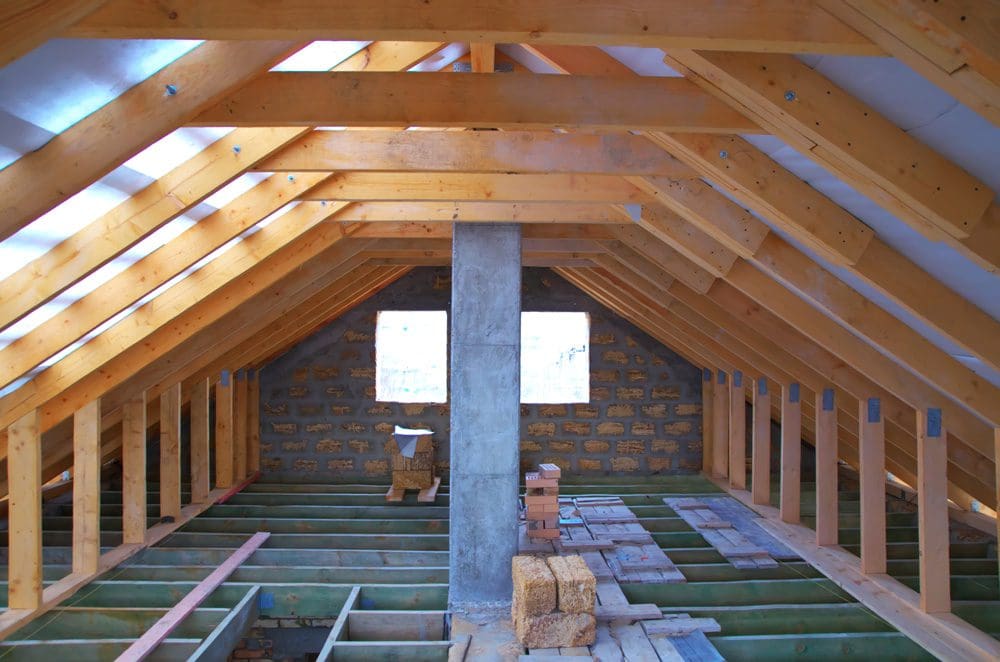
A loft extension is a great way to add value to a property. It means a three-bedroom house can be turned into a four-bedroom property by simply adding roof windows (the least expensive type of loft extension).
It’s also possible to buy the top floor of an older building with a loft and then extend into the roof space, effectively doubling the size of the property (again with refurbishment and roof windows).
With a two-storey gable end extension you can add two good-sized rooms, again greatly expanding the size of a house.
The good news is that you don’t usually require planning permission for a loft conversion, unless the planned extension is taller than the roof of the property, or it’s wider than the regulations advise etc.
A recent study by Halifax found converting the attic can add around £11,020 to a property and has, in fact, one of the best ROI’s when it comes to home improvements. An extension typically costs around £22,000 for a basic version. It can go up to £50,000 or £60,000 for a two-storey mansard.
Specialists lenders, rather than high street banks and building societies, is where you can find funding for this type of loan.
Different Types of Loans
You can take out a heavy refurb bridging loan to finance your loft conversion, for instance. The rates of interest are high for this type of loan, so it is advisable to take out the loan for as short a time as possible (ideally three to six months). You may only get from 65% to 70% LTV, so you will have to fund some of the work yourself.
Getting a loan from a traditional lender, such as a bank, means you will only get it in stages and an inspection will be required before the next tranche of funding is released. This can, inevitably, lead to delays with the project and extend its finishing date (and increase loan interest payments).
Hurdles of Getting Funding in the Current Climate
Traditional lenders, such as high street banks and building societies don’t offer this type of loan, unless the individual is converting their own property – and even then, funding can be tough to access.
Loan funding can also take time – which means money to a developer, especially if the project has already begun. And if you’re still at the purchasing stage and you don’t act quickly, some other investor may come along and bag that property bargain you have your eye on.
It’s often difficult for first-time developers to get a loan since lenders will often want to see a track record of success conversions to reassure themselves you know what you’re doing with their money.
How Sourced can Help
Our Sourced team is up-to-date with the changes in regulations and can help you to fund your project through our peer 2 peer lending platform. This is exclusive to our franchisees and can mean obtaining up to 100% of the funding needed for your loft conversion, provided it is secured against the actual property itself.
Want to find out more how Sourced can help? Then download our Sourced Network prospectus today.



